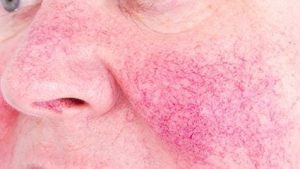MARY GAITSKILL’S THE MARE revolves around a pun: the aural slippage between the title — “mare” — and “mère,” which is French for “mother.” To see this as more than just a groaner, it’s important to remember that puns don’t simply put things on either side of an equal sign. A pun makes us laugh or groan precisely because of the inequality of its comparison and, usually by extension, its absurdity. The absurdities of inequality — that is, what is irreconcilable between lives with absurdly huge privilege differentials — are what Gaitskill attempts to approach with her newest novel.
The seed of The Mare came from a real-life NGO called the Fresh Air Fund. According to the website, FAF “sends inner-city children to host families or to camp to experience country life.” The Mare follows Velvet, said “inner-city” child — specifically, a Dominican girl of a single, immigrant mother — and Ginger, a white, middle-aged, middle-class, childless woman married to a Bard professor named Paul. The couple signs up for FAF as a gateway to adoption, but it becomes something else entirely as Ginger has an unexpectedly close relationship to Velvet, and Velvet has an unexpectedly close relationship with a mare, Fiery Girl.
Years before The Mare was published, Gaitskill wrote a non-fiction essay, “Lost Cat,” about the experiences which eventually turned into the novel. She did, in fact, host children — two boys. Velvet is based on Natalia, the older sister of one of the boys. Some elements of the experience she embellished, and others she downplayed: While Natalia did visit and ride horses, she was not particularly a prodigy, and the beatings the children received at the hands of their mother were worse than as are represented in The Mare. As Gaitskill says in her essay, the entire project was “a difficult one that frankly reeks of pain.” It isn’t too much of a stretch to imagine that inhabiting the perspectives of all her characters, respectively representing her ex-husband, host children, and their abusive mother, is the author’s attempt at radical empathy, her attempt at examining this pain in the context of her own life from within the lives of others.
I see The Mare as a kind of ars poetica. Her books have always been semi-autobiographical, but she has never before released such detailed accompanying autobiographical material. Coming back to the title, let’s compare “Lost Cat” to The Mare. She readily describes her fixation on the cat (a one-eyed kitten who disappears, throwing her into a frenzy of grief) as small and petty, but in her novel transforms a mutilated kitten into a huge, beautiful animal. She continues to disparage herself as Ginger, while illustrating Natalia’s strength and struggle, as well as her own love for an animal, through Velvet. In The Mare, she gives her best self to someone else.
 Gaistkill treats herself even more viciously in her novel than in her essay. As an avatar for Gaitskill, Ginger is far from flattering. She reminds me of Chris Kraus’s self-deprecating fictionalized version of herself as a washed-up artist/housewife in books like I Love Dick and Torpor, but with less righteous indignity. She often bemoans not being a “natural” woman, and despite being as aware of her privilege as any Northern liberal might be expected, never quite gets the strength to act against it. Ginger’s — and, through her, Gaitskill’s own — main revelation may be of their own weakness, and the weakness of their brand of love in the face of systemic economic and racial inequality.
Gaistkill treats herself even more viciously in her novel than in her essay. As an avatar for Gaitskill, Ginger is far from flattering. She reminds me of Chris Kraus’s self-deprecating fictionalized version of herself as a washed-up artist/housewife in books like I Love Dick and Torpor, but with less righteous indignity. She often bemoans not being a “natural” woman, and despite being as aware of her privilege as any Northern liberal might be expected, never quite gets the strength to act against it. Ginger’s — and, through her, Gaitskill’s own — main revelation may be of their own weakness, and the weakness of their brand of love in the face of systemic economic and racial inequality.
Race, appropriately, penetrates every aspect of The Mare, making the characters in turn frustrated, scared, alienated, and proud. Gaitskill is a white writer, and, perhaps inappropriately, sometimes writes in the first person from non-white character’s perspectives. From the beginning, we are aware that this might not go well. I do think it went well, but as I am also a white writer, so it’s more accurate to say that I’m not sure, and I suspect some would disagree. Since Gaitskill is one of my favorite fiction writers, I try to approach her writing with skepticism, because I know I have my love-blinders on.
I don’t know if a white writer should write from the perspective of a person of color, which Gaitskill does with her main character, Velvet, and Velvet’s mother and brother in a couple of chapters. I don’t know if white writers should ever write books “about” race, especially those who stand to gain money and acclaim for it, when those resources should clearly be going to writers of color instead. And, importantly, I don’t know if a person of color would enjoy this book, see themselves in any of the characters, or find it “revelatory,” as some reviews have called it. I’m not saying I didn’t love this book, but I do want to take into account the forces that enable or disable love, which is, incidentally, one of the main projects of The Mare.
The different ways that people think, speak, and show love has always been something that Gaitskill likes to chew over. I think it troubles her, and I think a lot of people share in that trouble; that’s why she’s such a cult icon. Is it love if the person hits you (Because They Wanted To)? Consensually (Two Girls, Fat and Thin)? Is it love if the person disgusts you a little (Veronica)? Usually, Gaitskill seems to agree with bell hooks’ assertion that it’s not love if they hurt you — and vice versa. What Gaitskill asks us to consider, though, are the unintentional harms that we commit against our loved ones — the fact that, sometimes, our very existences are part of the force that, every day, hurts the people we think we love.
Can empathy ever be more than a self-serving project when it comes to white writers and their non-white characters? I’m honestly not sure, and I’m not sure Gaitskill is, either. But she’s the kind of writer who tries anyway, and I think it’s perhaps the most genuine attempt I’ve ever seen. The power dynamic between writers and their subjects, fictionalized or not, is anguished. With The Mare, Mary Gaitskill makes sure we all feel the pain.
Get your copy of The Mare from Charis Bookstore, one of the last independent feminist bookstores in the United States.

















